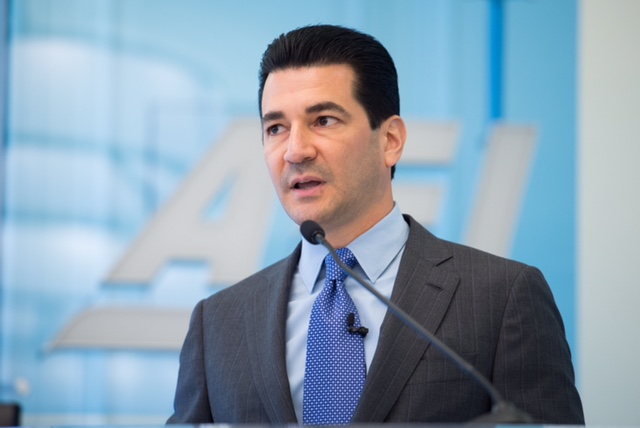FDA chief nominee Gottlieb reveals industry links

Scott Gottlieb, president Donald Trump’s nomination for FDA commissioner has revealed his close links with pharma.
Gottlieb has published a long list of companies that he will not make decisions on, due to potential conflicts of interest, ahead of a confirmation hearing before the Senate on Wednesday 5 April.
Aside from well-known work as a consultant for GlaxoSmithKline, Gottlieb has also been a board member at MedAvante, a medical device company. Gottlieb could recuse himself from making decisions on MedAvante for two years if he received unpaid compensation from them.
He has also listed consulting work for Bristol-Myers Squibb and Vertex and plans to resign from positions at American Pathology Partners and Collective Health.
Gottlieb has stock options in Gradalis, Glytec and Strike Bio, although he resigned from positions at Gradalis and Strike, and will sell off his investments 90 days after he is confirmed.
There are also his investments in a long list of pharma and tech companies through investment bank TR Winston, including Emmaus Life Sciences, Neuralstem and Tivorsan Pharmaceuticals.
Gottlieb will also resign from a group of other positions including American Enterprise Institute, New York Unversity School of Medicine, and Daichii Sankyo US.
His many links with pharma will come under scrutiny at the hearing of the Senate's committee on health, education, labour and pensions, but Democrats are thought unlikely to oppose his appointment.
For the pharma and biotech sectors, Gottlieb is strongly favoured - though this was partly thanks to other candidates apparently shortlisted being far less qualified for the post.
The nominee has begun the process of disentangling himself from a string of pharma and life sciences investments and business interests that could potentially clash with his role at the regulator.
A well-respected doctor, Gottlieb previously worked as deputy commissioner for the FDA under the George W Bush administration, and since then has made millions through a series of investments in pharma and life sciences.
In most cases Gottlieb will recuse himself from making decisions about the companies for the next year.
Despite being a more conventional candidate than other shortlisted nominees, Gottlieb’s ideas are still very much pro-reform. He wants faster approvals of drugs, has backed a special unit focusing on development and review of orphan therapies, and publication of FDA rejection letters.
Gottlieb will be confronted with two major issues. Firstly, President Trump has promised massive cut to FDA regulations - a pledge which regulatory experts and pharma say is wrong-headed and concerning. Many hope Gottlieb will follow a more moderate path, but he has been careful to withhold comments in recent months.
Secondly, the president has also proposed cuts to federal funding for the FDA. This move could undermine the agency's work programme, including an expansion in tasks via the 21st Century Cures Act.












